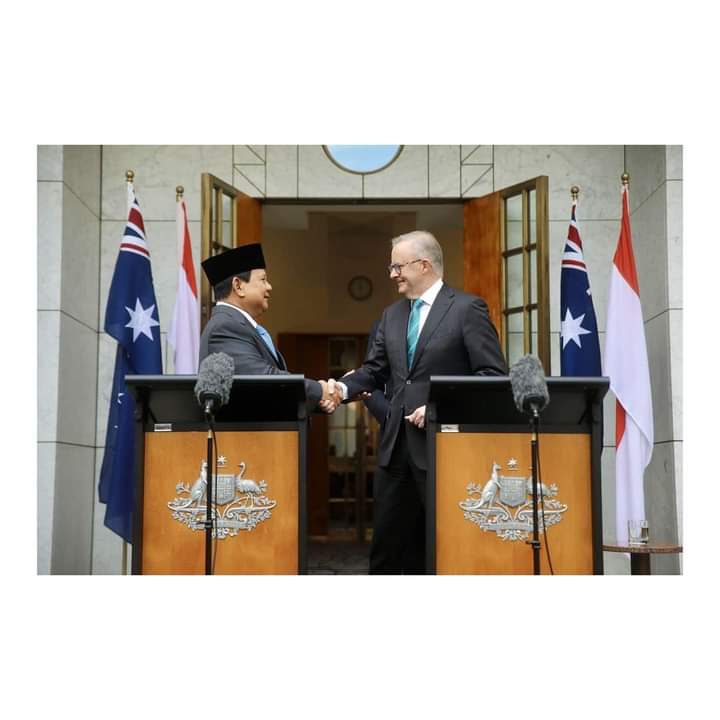Prabowo Announces Debt Relief for 1 Million Farmers and Fishermen
JAKARTA, RAKYAT NEWS – Indonesian President Prabowo Subianto has officially canceled debts owed by micro, small, and medium enterprises (UMKM) in the agricultural, plantation, livestock, and fisheries sectors.
This bold move, announced at a press conference at the Merdeka Palace on Tuesday, is in line with Government Regulation (PP) No. 47 of 2024, which was signed by President Prabowo on the same day.
The debt cancellation will provide relief to over 1 million individuals in these sectors, who have faced financial hardship due to the COVID-19 pandemic and other natural disasters. Prabowo’s decision aims to boost agricultural and fishery production, key sources of food for Indonesia’s population, by easing the financial burdens that have limited these industries’ potential.
“We believe that the people of Indonesia should be honored for their critical role in ensuring the nation’s food supply,” Prabowo stated.
The government’s debt cancellation initiative is focused on farmers, fishermen, and small businesses that had previously struggled to access traditional bank loans due to their poor credit history.
With this program, they will no longer be burdened by debts owed to state-owned banks, which were previously causing them to seek loans from informal and often predatory lenders.
Maman Abdurrahman, Minister of UMKM, explained that this debt relief will benefit approximately 1 million people, with the total debt amount reaching IDR 10 trillion. The program targets individuals and businesses with debts up to IDR 500 million for companies and IDR 300 million for individuals.
“This initiative is for those who have truly been unable to recover financially after the pandemic or natural disasters such as earthquakes,” Maman clarified during the announcement.
This debt forgiveness does not apply universally to all UMKM. The policy is specifically tailored for those whose businesses have been significantly affected by external shocks, such as the pandemic and natural disasters.
Maman emphasized that businesses with the potential for recovery will not be included in the debt relief scheme. “Banks will review the financial viability of each case, and those deemed capable of continuing operations will not have their debts wiped out,” he said.
Importantly, the debt cancellation will not utilize the state budget (APBN). Instead, it will be implemented through a process known as “write-off” of non-performing loans, which will be managed by the state-owned banks (Himbara). The banks involved have already identified eligible borrowers, and the process will commence immediately following the enactment of PP 47/2024.
The debt forgiveness policy is part of the broader effort to provide sustainable solutions for Indonesia’s agricultural and fishing industries, sectors that are central to the country’s economy. The initiative is also seen as a way to support Indonesia’s larger goal of economic recovery and resilience in the wake of the economy
The announcement was attended by several key ministers, including Sakti Wahyu Trenggono (Minister of Maritime Affairs and Fisheries), Andi Amran Sulaiman (Minister of Agriculture), Sri Mulyani (Minister of Finance), and others. The presence of these leaders underscores the collaborative effort across various sectors of government to address the financial challenges faced by the nation’s farmers, fishermen, and small businesses.
This debt relief program is expected to have a significant impact on Indonesia’s rural economy, potentially revitalizing local industries and boosting employment in agriculture and fisheries. As these sectors regain stability, they are likely to contribute more effectively to food security and economic growth.
The cancellation of such a large volume of debt is a bold move by the Indonesian government, but it also carries risks, particularly for the state-owned banks that are involved. While the banks will not lose revenue directly through this scheme, the write-offs will affect their long-term profitability. Nevertheless, government officials argue that the short-term financial sacrifice is necessary for the long-term benefits of a more sustainable and resilient agricultural and fishing sector.
The policy begins to take effect, stakeholders in the agriculture and fisheries sectors are hopeful that it will serve as a model for future economic recovery strategies. The success of this program could lead to further initiatives designed to support other vulnerable sectors in the Indonesian economy. (Uki Ruknuddin)



























Tinggalkan Balasan